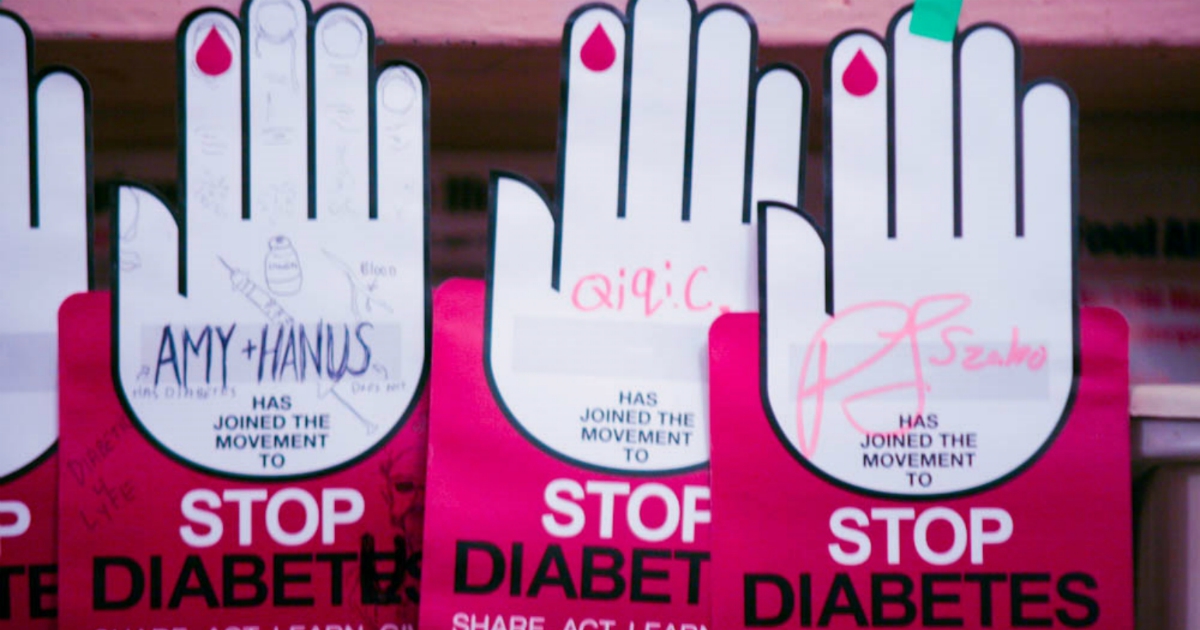Exactly one hundred years ago, two Canadian endocrinologists, Banting and Best, isolated theinsulin; already a year later they used it successfully in the treatment of a 14-year-old patient otherwise destined to certain death, after some experiments on animals in the laboratory made available to them by Mcleod. Together Banting and Mcleod in 1923 received the Nobel Prize in Physiology and Medicine. Since that time the diabetes entered the field of chronic diseases that can be contained with therapies accessible to patients – obviously those of the First World.
The World Diabetes Day it has been celebrated since 1992, on November 14, the day of Banting’s birth. The initiative was taken by the International Diabetes Federation (IDF) and the World Health Organization (WHO). The aim: to alert the world about the dizzying increase in cases, to the point of describing (even then) the situation with the term “diabetes pandemic”. The growing alarm for the almost exponential spread (which shows no signs of stopping) then pushed the UN to make World Diabetes Day its own with resolution 61/225 of 2007, in which it writes that it is “a disease chronic, disabling and expensive that involves serious complications “. The UN and the WHO consider it one of the three health emergencies of the planet, along with tuberculosis and malaria. In 2019, in fact – according to IDF estimates – there were 463 million adults with diabetes, in 2045 it will be 700 million. Two thirds of people with diabetes live in urban areas and three out of four are of working age. Also in 2019 over 4 million people have died for diabetes.
“[…] type 2 diabetes is disease transmissible because transmissible are the genes that predispose to disease and transmissible is the unhealthy lifestyle that has infected modern society. The latter is a kind of virus that is spreading slowly and silently, as is diabetes. The only vaccine we can rely on is greater knowledge of the disease. By knowing it, non-diabetics may be able to avoid it. Knowing it better, people with diabetes could manage it better, ”he writes Enzo Bonora of the Italian Society of Diabetology, inviting all doctors to give maximum importance to the initiatives of awareness raising that around the world are raising the alarm for this pandemic: #FaiLuceSulDiabete. In Turin, for example, the Sandretto Re Rebaudengo Foundation also moves, dedicating November 14 to diabetes and the stigma that still surrounds the disease.
Yes, because although diabetes is widespread and known, there is still a lot of it ignorance about a disease that occurs when the body produces insufficient insulin, a hormone secreted by pancreas it is necessary for the metabolism of carbohydrates. In the blood there are high levels of glucose which are harmful to many organs of the body, disabling and in the long run deadly. There are several types of diabetes, but by far the most common is type 2 diabetes mellitus T2DM (approximately 95% of cases) found in adults and the elderly population. It also and above all depends on the lifestyle of the individual and is often associated with obesity, malnutrition and, more generally, with a lifestyle sedentary, not attentive to health and diet. Hence the social stigma: the cause of his ills, which cost the community so much in terms of care and disability, can be traced back to his wrong choices of the patient. The DMT2, on the other hand, is precisely the social disease par excellence, the product of a disjointed society, falsely opulent and lazy whose victims are precisely the most fragile, the most defenseless in the face of the continuous urge to consume. We are talking about almost 3.4-4 million Italians, adults and elderly, who suffer from type 2 diabetes, one in six people in the over 65 age group: 1.5 million people have diabetes, but it is not yet been diagnosed. To them are added another 4 million people who are in the anteroom of the disease, given that after the meal their blood sugar is out of control, thus testifying the predisposition.
The other type of diabetes mellitus, that of Type 1, DMT1, has nothing to do with lifestyle and nutrition. It is a disease autoimmune which occurs in children and adolescents and affects insulin-producing cells in the pancreas. In Italy there are about 16 thousand minors who suffer from this pathology, over a million cases treated in the world. Many more those that escape the radar of health, especially in poor countries, and that lead to premature death. The awareness-raising initiatives of families and educators are important: the observation of children is essential to prevent the disease degenerate before being recognized and addressed. So: “If you drink a lot and pee a lot, let’s think about diabetes”.
The constant study and statistical monitoring that generated the Italian Diabetes & Obesity Barometer Report 2021 also testifies to the fact that the “diabetic pandemic” constitutes an element of strong concern, a mine of data and a very topical cross-section, especially in times of pandemic Covid, source of a large part of the data in this post.
Fortunately, at least in rich countries, the health system makes use not only of passionate doctors and operators, but also of tools and acquaintances which serve to heal better, to prevent the disabling effects of the disease, to reassure patients and to explain how technology is changing the lives of those affected, like this video by Dr. Tinti, Turin pediatrician with diabetes, almost become viral among the families of sick young people.
